Is it wide enough, thick enough and detailed enough for athletes? Absolutely not. You can do it too, but it depends on whether you have the right moves.
Traditionally, there are two types of back training: horizontal pulling and vertical pulling. But the back muscles are a rather complex structure, so you have to incorporate several different planes of pulling, not just two.
Make weak body parts almost as strong as strong ones. If your back is weak, the first step is to recognise the areas that need improvement and then develop methods to train the weak areas.
Latissimus dorsi - seated opposite grip rope row
This movement strengthens the width of the back, depending on how it is done and which muscle in the back is mobilised the most.
In this movement, which targets the lower latissimus dorsi, pull the handles lower on the upper body, keeping the elbows close to the body and pulling back as far as possible, concentrating on the lower latissimus dorsi. Imagine the hands like hooks, if the weight is mobilising the upper arms more for power, you will need to reduce the weight. There is also a unilateral variation of this movement: work with one arm at a time, train to the part of the back you want to work, try using the free arm, this will help build nimble consistency.
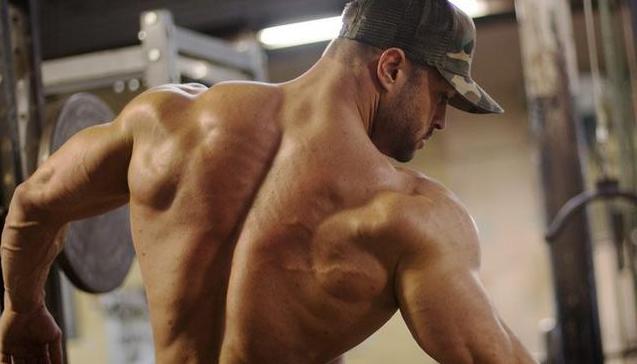
Large round muscle - single arm high pull down
Before you start training, this is a muscle that is often trained when performing back exercises and will give definition to the back if worked out. The large round muscle is located above the latissimus dorsi and functions in the same way as the latissimus dorsi during exercise. Note that it starts at the scapula and ends in front of the humerus, which means that to fully extend this muscle, you need to raise your arm above your head and then externally rotate it into a reverse grip (palm up). To fully contract this muscle, you need to do the opposite, that is: straighten the arm and extend it as far as it will go, while internally rotating the arm forward to a forward grip (palm down).
We do a single arm high pull down and can feel the burning sensation in the highest point of the latissimus dorsi and the large round muscle will also be strong, this exercise gives the whole back a workout.
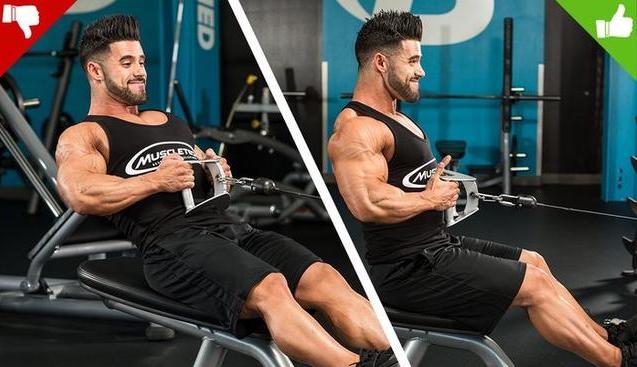
Obliques - T-bar row and rope horizontal raises
To train the obliques, you need to be able to shrug your shoulders. Shrugs do stimulate this part of the body, but what about the middle and lower obliques? Do T-bar rowing. t-bar rowing is a good way to do this, the movement depends on the engagement and tension on each muscle. To really work the middle obliques, stretch the scapulae, try to keep the back neutral and in the correct position, then pull the elbows back, keeping them close to the body, clenching the scapulae and squeezing them. Lift the rope horizontally to allow the lower trapezius to burn.
Set the height of the pulley at belly button level, attach a straight bar, hold the bar with both hands, face the pulley, lean back slightly, straighten the arms, hold and contract the obliques, lift and pull the arms from a horizontal position to a vertical position, work the obliques and feel the burn at the highest point, then slowly lower the weight to the starting position and repeat. Use lighter weights for the workout, execute the workout strictly, focus on the obliques for added stimulation and don't sway during the workout to lend strength.
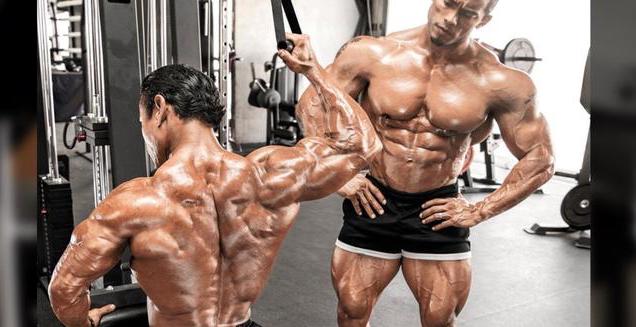
There are also the following 5 efficient back training movements.
1. Wide grip pull-ups
This is one of the best back exercises you can do, with a great impact on the latissimus dorsi. Hold the bar in your hands with a wide grip and a positive grip (palms outwards), keeping your elbows open during the pull-up to try to avoid the biceps borrowing force and maximise stimulation of the latissimus dorsi. If getting strong through this movement, try adding weights to the feet.
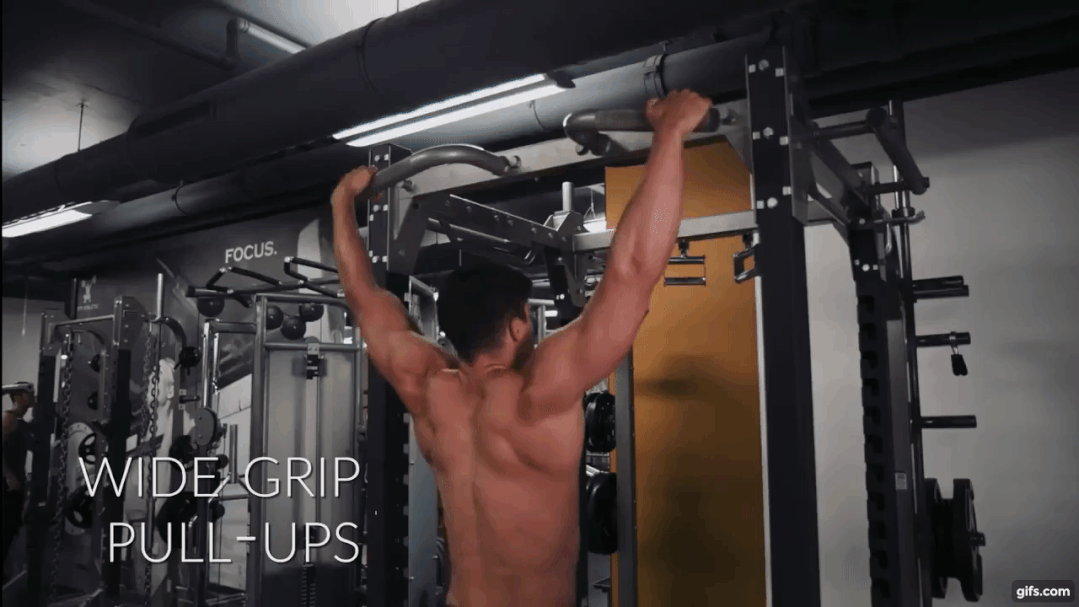
2. Touchdown barbell row
Using a touch barbell row with correct posture will stimulate the latissimus dorsi more than any other rowing movement. When doing this, posture is key, hold the barbell in a prone position (knees bent, feet shoulder-width apart, back parallel to the floor) and pull the barbell from the floor to your abdomen, just like a bench press. Perform this movement keeping your knees bent, hips locked and hips and knees still at all times. Lower the barbell back to the floor, pause for a moment and continue pulling up, making sure to consciously engage the latissimus dorsi muscles to pull the bar up and then squeeze the shoulder blades at the highest point. Grasp the straight bar with both hands, palms facing the floor, and move your hands in an arc, taking care to use your latissimus dorsi muscles to generate force.
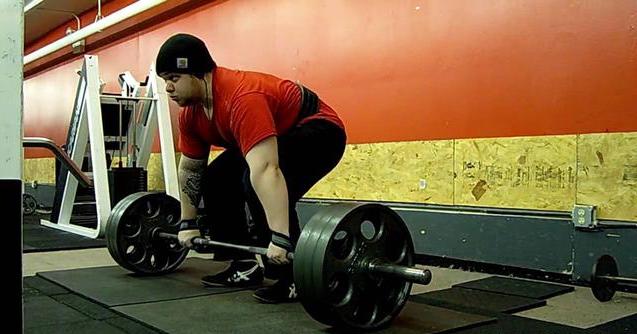
3. Straight arm pull down
Grasp the straight bar with both hands, palms facing the ground, and move your hands in an arc, using the latissimus dorsi muscles to generate force.
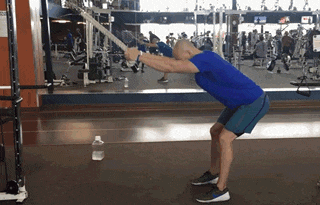
4. V-handle pull-ups
This is a variation of the pull-up. Place the V-handle on the pull-up bar with the handles on either side of the bar, hold the handles with both hands and hang your body in the air as you perform a pull-up. As your chin goes over the bar, continue up until your pecs touch the bar, leaning your body back at the highest point.
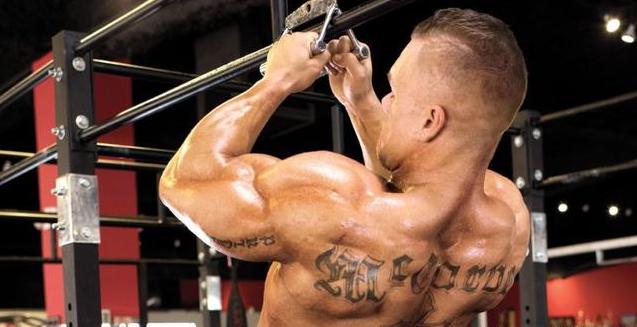
5. One-arm high pull-down
Here, to repeat, unilateral training is great for building muscle and increasing muscle balance. In front of the apparatus for the high pull down, grab the single arm handle and pull down to the front of the anterior deltoid, hold in the contracted position for a second and then return to the starting position.

"Training effectiveness starts with looking at the back", I think that's a pretty good statement, especially for athletes who play men's bodybuilding and classical bodybuilding, and since we know it's important to develop a well-proportioned, balanced body, we need to start now!
Popular Articles
-
Keep your power sockets and air conditioner remote control well stored
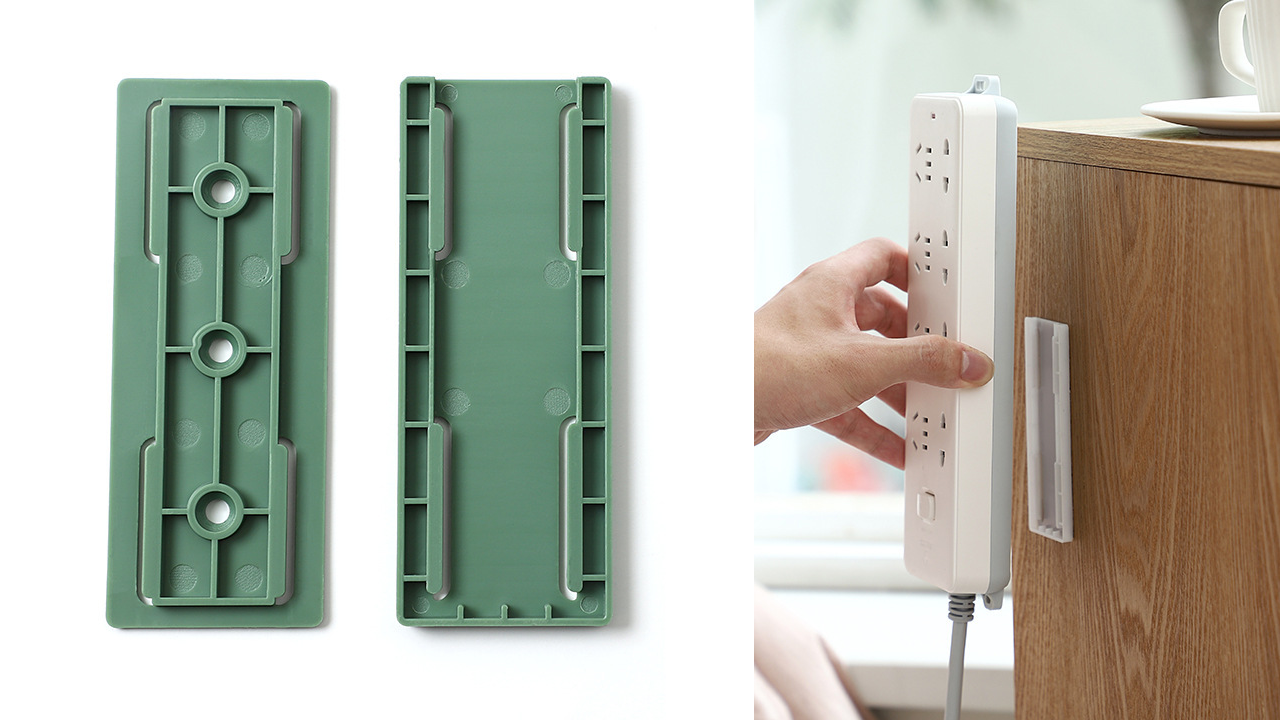
Photos
-
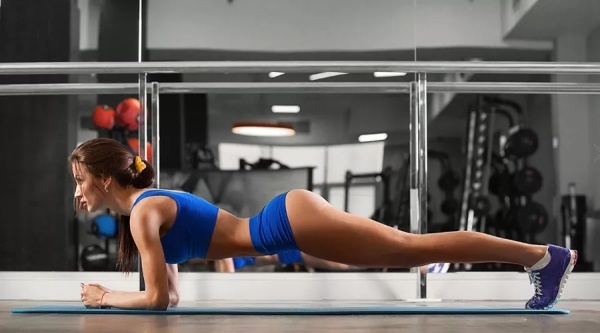 Fitness Equipment | How to choose a suitable for their own yoga mat?
Fitness Equipment | How to choose a suitable for their own yoga mat?Apr 08, 2025
-
 Rice Dumpling with Meat Suffing and Salted Egg Yolk
Rice Dumpling with Meat Suffing and Salted Egg YolkApr 08, 2025
-
 These Scandinavian brands of tableware will surprise you
These Scandinavian brands of tableware will surprise youApr 08, 2025
-
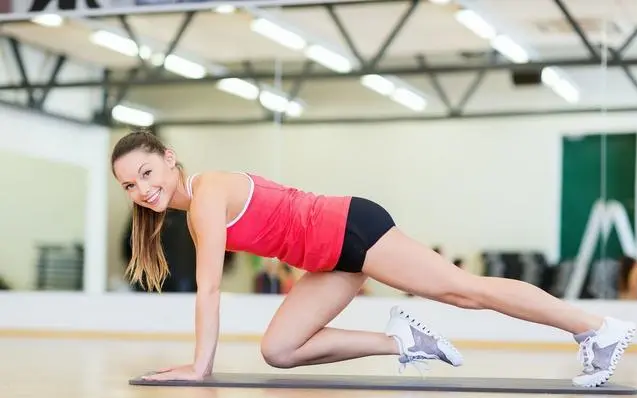 During weight loss, is it better to choose aerobic exercise or strength training?
During weight loss, is it better to choose aerobic exercise or strength training?Apr 08, 2025
-
 51-year-old uncle cool like a 20-year-old boy, the god of freezing age to teach you the secret of ageless!
51-year-old uncle cool like a 20-year-old boy, the god of freezing age to teach you the secret of ageless!Apr 08, 2025







Comments
0